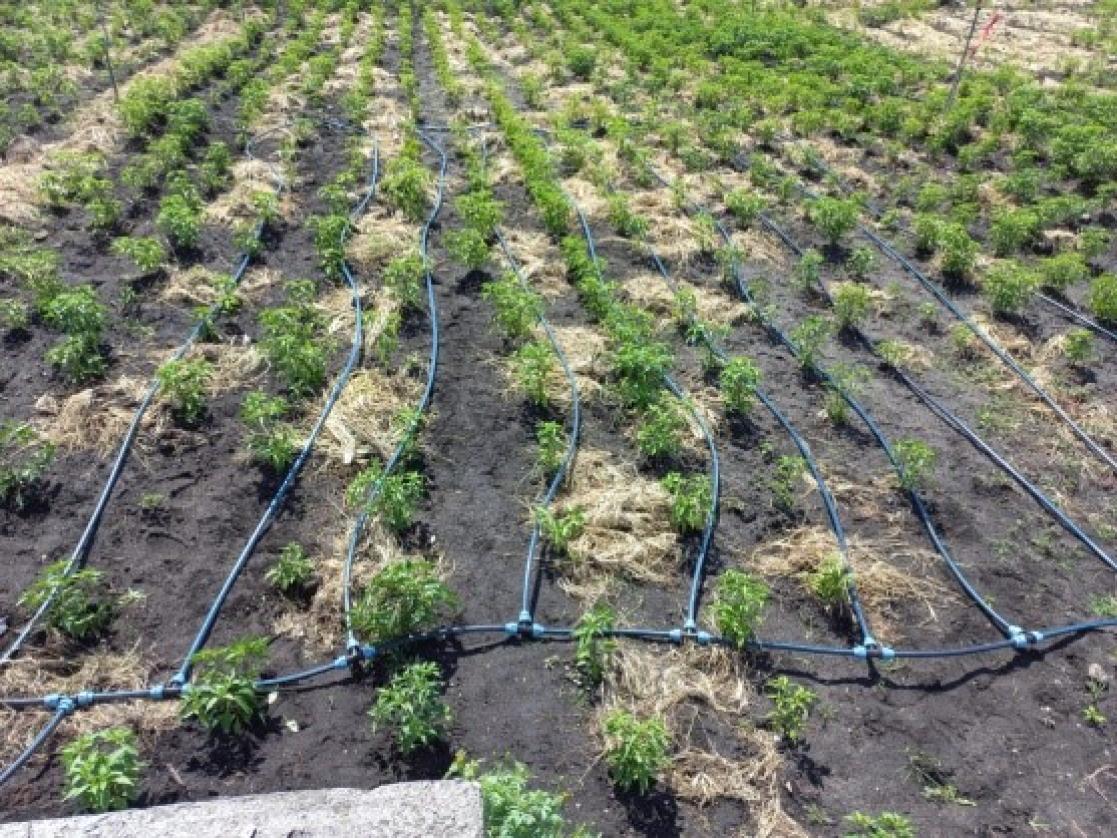Mauritius - How planters in Belle Mare are saving water?

The region of Belle Mare in the island state of Mauritius is a coastal region which includes a farming community comprising of about 500 small-scale farmers who cultivate onions, eggplant, beans, chillies, with small amounts of other vegetable crops. The soil in this region is a regosol (sandy), with very low water holding capacity, very high infiltration rate, and very low fertility. Cultivation is possible only with heavy inputs of irrigation water and large amounts of synthetic NPK fertilisers, which not only make the cost of production for these resource-poor farmers quite high, but is also environmentally risky. Government has put in place an irrigation scheme specifically for them, whereby river-water is pumped to the region for irrigation on a cost sharing, subsidised basis. The irrigation is done using high-powered overhead sprinkler systems which is highly inefficient and wasteful, and has a number of drawbacks, e.g. damage to young seedlings and high levels of soil erosion due to the force of the water, areas of the fields where the overhead sprinklers do not reach, and high electricity costs to operate the water pump.
As part of the EU-funded project, the Faculty of Agriculture has provided planters with individual water tanks, placed on a height of 1 metre and a drip irrigation system, such that the water comes down the tank into the driplines by gravity, without the need for a fossil-fuel based water pump. The drip lines are placed near the roots of the crops, so the crops get the water the need without any excess, wasted water.
As a result, crops get the water they need without any excess, wasted water, there is a significant decrease in amount of water needed for irrigation. Other results include reduced electricity costs, no damage to tender seedlings, no soil erosion, no leaching of agrochemicals into the nearby coastal ecosystem and water stored in the water tanks is available during periods of drought.
According to Professor Sunita Facknath, the Project Leader : "The planters who have benefited from free water tanks and a gravity-based drip irrigation system as part of the EU-funded project are serving as role models and good examples for other planters in the region who have not benefited from the same".
The project entitled "Transformation of Belle Mare into a Climate-Smart Agriculture village for climate resilience, food security, and poverty alleviation of its farmers" is being implemented by the University of Mauritius as part of the EU Global Climate Change Alliance Plus Initiative - GCCA +.

University of Mauritius





